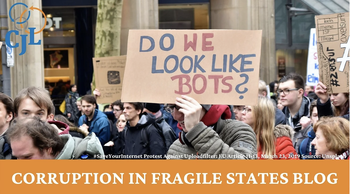Are we holding AI anti-corruption tools accountable?
Fernanda Odilla discusses the need to use AI (Artificial Intelligence) responsibly in anti-corruption
Published on 25 October 2022

The BIT-ACT research fellow Fernanda Odilla reflects on the need to better understand the increasing use of artificial in anti-corruption in a text entitled “Avoiding minority reports: using AI responsibly in anti-corruption”
The text was published in the Corruption in Fragile States Blog, an initiative of the Corruption, Justice and Legitimacy Program, a research-to-practice initiative committed to improving the effectiveness of anti-corruption programming in contexts of endemic corruption at Tufts University.
“If we want better anti-corruption efforts, we need to understand how these artificial intelligence (AI) tools operate, who created them, and their impacts and risks. Moreover, we must know who is monitoring the monitors. Otherwise, we risk perpetuating the ills we seek to cure”, stresses Odilla.
Apart from arguing for less hype and more critical reflection on the use of AI in anti-corruption, Odilla proposes three essential research needs for evaluating AI’s role in anti-corruption.
Check the full text here.